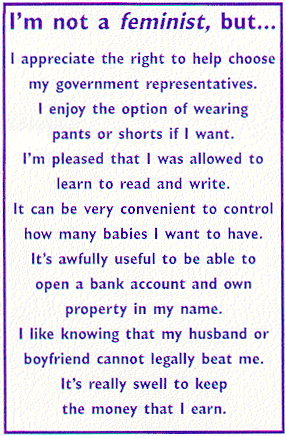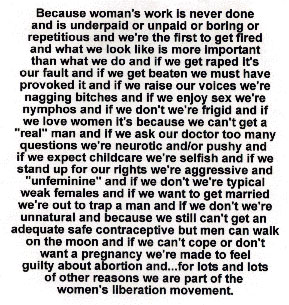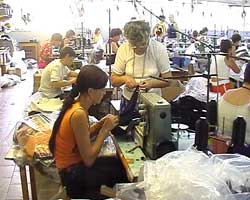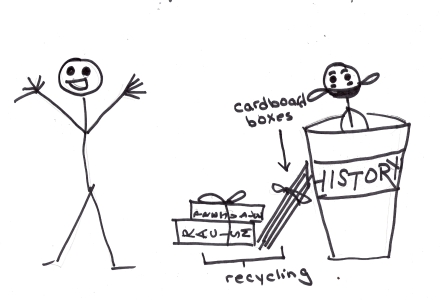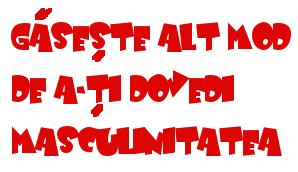o foarte buna sinteza a raspunsului la intrebarea de ce nationalismul este un subiect relevant pentru feminism si viceversa (de thinking girl) [en]
… Nationalism is replacing democracy. Nationalism … is a disguised form of racism, and democracy becomes a tool for nationalist racism to flourish through “freedom of speech” that allows freely spoken hatred – this “freedom” is a freedom of the speaker, not a freedom of those spoken about. When nationalism creates images and rhetoric of homogeneity in its population, marginalizing on the basis of race, gender, and sexuality, the freedom of marginalized groups to speak back against hate speech with speech of their own is compromised, because their speech is not as powerful and valuable as that of the dominant group. Hate speech is one-sided; how is that “freedom”? “equality”? Outsiders in a nation cannot use freedom of speech to challenge the inside ofthat nation; their speech is rejected.
Language about nations is largely highly gendered. We talk about the “mother” or “fatherland”, the “mothertongue.” Nationalism is often spoken in terms of family, headed by a masculine figure, and embodied as a woman. The patriarchal family unit is privileged in nationalistic discourses. The feminine is mother, nurturer, caregiver, in this family, and so the nation’s women are mothers of all the children of the nation. This makes women particular targets in ethnic cleansing regimes as warring groups rape and impregnate women, forcing them to literally be the mothers of a new fantasmic nation of their own design. The women themselves get lost in these violent acts; ethnic cleansing/genocidal rape is seen as worse than “regular” rape, partially because the crime has men as the intended victims as well as the raped women: genocidal rape is meant to eliminate a population of people, not just eliminate the woman. And here, of course, “people” includes the most important citizens: male citizens. At the same time that victims of genocidal rape are forced to be mothers to a new nation, they are eliminated as the mothers of the old nation, used to break apart the national family. And this fiction is legitimized along racial lines but it plays out on gender lines, normalizing gender violence by leaving it unnamed. Male-male rape in war is not mentioned because it destabilizes the very idea of gender central to nationalism. And, of course, in all of this ideology about the patriarchal family unit, gay, lesbian, bisexual, and trans people are completely invisible, because sexuality is invisible…


